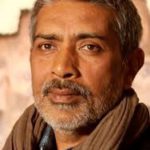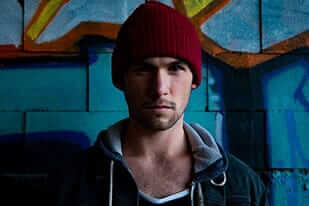FILM MAKING
- INTRODUCTION
- CAREER OPPORTUNITIES
- COLLEGES IN INDIA
- ADMISSION CRITERIA
- SKILL SET
- ROLES AND RESPONSIBILITIES
- SUCCESS STORIES
Do movies and films interest you?
There are different kinds of career opportunities in movies, while most of people dream of becoming actors, there are several other options too like a Film Director, Video
Designer, Cinematographer, Choreographer, etc.
If you have a creative side and want to make films then you should try to opt for a career in film making (especially direction).

Film maker is probably the most important person in film making, he or she is the captain of the ship. They give direction to the film, they visualize each scene of the fil and make it happen. Everyone in the movie making follows the direction of the filmmaker.If you are a filmmaker, your role will come from conceptualising the film script, finding actors for each role, scouting locations for shooting, imagining each scene, directing each scene, getting best out of actors, helping actors understand the scene, coordinating between each unit of movie, working on post- production, finalising the final movie out of all shots, etc.
- Film Producer
- Camera Production Assistant
- Motion Control Operator
- Camera Operator
- Camera Assistant/ Cameraman
- Director of Photography
- Cinematographer
- Video Editor
- Videographer
- Assistant production Controller
- Director (Feature Film/ Documentary Film)
- Digital Film Maker
- Director (Commercial Film)
- Actor
- Writer
- Digital Sound Engineer
- Content Producer
- Graphic Designer
- Technical Consultant
- Editor
Ambedkar University Delhi, Kashmiri Gate
Ph.D. Film Studies (3 year)
Master’s Film Studies (2 year)
Manipal Institute of Communication
M.A.F. Film Making (2 year)
Jagran Lakecity University, Bhopal
B.F.A. Digital Film Making & VFX (3 year)
Biju Pattanaik Film & Television Institute of Odisha, Cuttack
BA Cinematographer (3 year)
BA Film and Video Editing (3 year)
Deviprasad Goenka College of Media Studies, Mumbai
MA Film, Television & New Media Production (2 years)
B.A. Film, Television & New Media Production ( 3 years)
- Film and Television Institute of India, Pune
- Satyajit Ray Film and Television Institute, Kolkata
- LV Prasad Film And Tv Academy
- Whistling Woods International- Mumbai
- National Institute Of Film & Fine Arts(NIFFA),Kolkata
- Asian Academy of Film and Television, Noida
- Zee Institute of Media Arts (ZIMA),MUMBAI
- Mumbai Film academy, Mumbai
- Jadavpur University, Kolkata
- SAE Technology College, Chennai
- Annapurna international school of Film+ Media, Hyderabad
- ICE Balaji Telefilms – Institute of Creative Excellence, Mumbai
- Ramoji Academy of Film and Television, Hyderabad
- Ramesh Sippy Academy of Cinema and Entertainment, Mumbai
- Center for Research in Art of Film and Television, New Delhi
- Digital Academy , Mumbai
Admission Criteria – Various Entrance and Merit Cut Offs:
Undergraduate
| College | Tentative Date | Important Elements |
| Whistling Woods International | July (forms) | General Aptitude Test, Creative Ability Test & Personal Interview. |
| Asian Academy of Film and Television, Noida | October - July | Entrance - Written (Objective), Aptitude test, Personal Interview |
Postgraduate
| Institution | Tentative Date | Important Elements |
| Film and Television Institute of India, Pune | June - July (Forms) | Written exam- Creative skills, GK, Logical aptitude, GD, Personal Interview |
| Satyajit Ray Film and Television Institute, Kolkata | April - May (Forms) | Written exam- Mental aptitude, Creative aptitude & Specific area aptitude,
Interactive Orientation Course Interview |
| Center for Research in Art of Film and Television, Delhi | Jan (Forms), October & November (Interview) | Personal Interview |
| Asian Academy of Film and Television, Noida | October - July | Entrance - Written (Objective), Aptitude test, Personal |
- Creative and imaginative
- Artistic Flair
- Immense self-Confidence
- Hardworking
- Good communication skills
- Sense of responsibility
- Instincts as well as managerial and administrative abilities
- Direct overall making of the film or documentary and how it is to be presented to the viewers
- Select the actors suitable for the selected script
- Guide the actor in portrayal of the character through suitable expressions, dialogues, voice modulation, looks and attire
- Monitor the technicians for lighting, backdrop, sets, camera and special effects
- Oversee the performance in terms of choreography, music composition, singing, etc.
- Work with editors for proper sequencing of the scenes
- Ensure the progress of the project within the schedule and the planned budget
Prakash Jha
INDIAN FILM DIRECTOR

Prakash Jha (born 27 February 1952) is an Indian film producer, actor, director and screenwriter, mostly known for his political and socio-political films. He is also the maker of National Film Award winning documentaries like Faces After The Storm (1984) and Sonal (2002). Jha runs a production company, Prakash Jha Productions. He did his schooling from Sainik School Tilaya, Koderma district and Kendriya Vidyalaya No. 1, Bokaro Steel City (Jharkhand). Later, he joined Ramjas College, Delhi University to do B.Sc (Hons) in Physics; though he left studies after one year, and decided to go to Mumbai and become a painter, while he was preparing for J.J. School of Arts, he happened to witness the shooting of the film Dharma and got hooked on to filmmaking. Soon he joined the Film and Television Institute of India (FTII), Pune in 1973, to do a course in editing, midway through it, the institution was closed for a while, due to student agitation, so he came to Mumbai and started working and never went back to complete the course.
That’s All Folks!..







